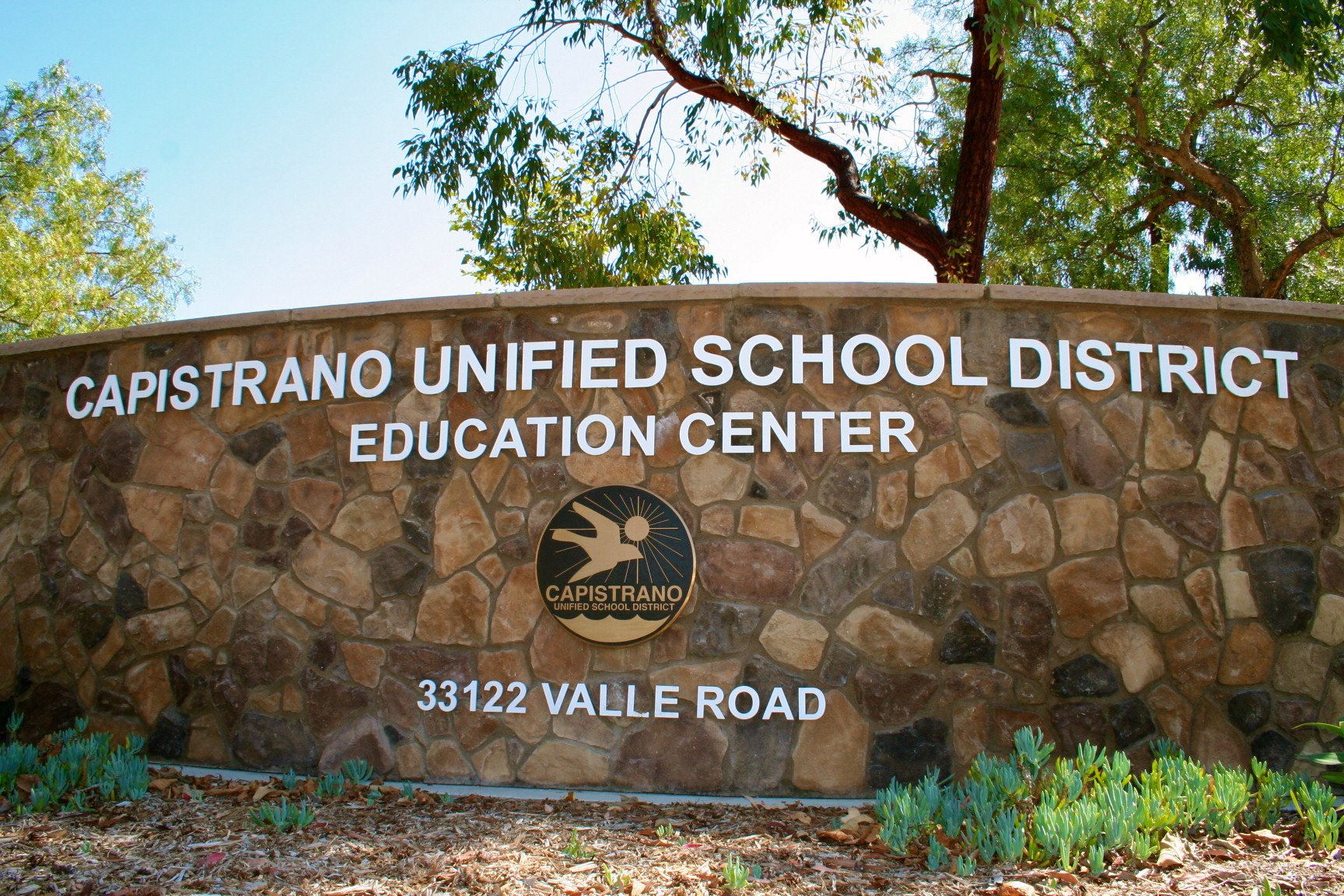
The Capistrano Unified School District is continuing to enhance cultural proficiency, goals that include reductions in student harassment and suspensions.
CUSD staff presented a biannual report on progress made with overall plans—which the CUSD Board of Trustees adopted in December 2020—to trustees on Wednesday, Feb. 24.
Regarding reported rates of student harassment for certain student groups, harassment rates were said to have increased for Asian and Hispanic students from the 2020-21 and 2021-22 school years.
Harassment increased by 20% for Black students in the ninth grade, though decreased by 6% for seventh grade and 2% for 11th grade. The district’s cultural proficiency plan aims for student harassment in those and other student groups to decrease by 5% or more by June of this year.
District staff will continue “reflection” and implementing positive behavior intervention and support services to address student harassment, according to the report.
“Staff will continue to collaborate with site leaders on strategies and training associated with anti-bullying, student connectedness, and school culture,” the district said in its report.
As for suspensions, which the district intends to reduce by 25% or more for identified groups by June, including foster youth and Black students, the report noted suspensions had deceased for most groups.
Particularly, suspension rates decreased by 1% for Black students, 1.5% for disabled students, and 0.1% for socioeconomically disadvantaged students. Suspension rates remained the same for Hispanic and White students.
Trustees addressed student behavior and cultural proficiency after reviewing the report.
“I still feel that in middle school, we still have a lot of behavioral issues,” Trustee Judy Bullockus said. “As it relates to suspensions, the length of suspensions—and I consistently hear from teachers (about) discipline—I like to hear there is work on consistency in terms of from school to school and that it’s very clear what the expectation is, that there is a system.”
“Not to be one strikes, two strikes, three, you’re out, but, really, working on the behavior and building the relationship with the student that’s having a problem and seeing what we can do in that mental health, mindfulness way,” Bullockus continued. “If we don’t help students in middle school, it’s just going to perpetuate in high school.”
Board President Krista Castellanos said the post-pandemic world is different when it comes to student behavior.
“The conversation that has taken over (teacher) collaboration meetings is all about behavior and how we’re learning to manage students in this environment that they’ve now come back to, and teachers are trying to figure out a whole new student and they’re trying to figure out classrooms and how to manage their behavior at school,” said Castellanos, who is a teacher.
“Behaviors just continue to increase,” Castellanos continued. “How do we tackle that as a school district?”
Trustee Gila Jones remarked on the overall importance of cultural proficiency.
“This is part of teaching kids to be successful adults. They cannot be successful adults if they do not understand how to function in an increasingly diverse society,” Jones said. “They cannot get jobs, and the jobs they do get, they won’t be able to keep. If you cannot treat your co-workers, customers, boss, you name it, who may be from a different culture or ethnic group or religion or whatever, appropriately, you will not be working there very long.”
The biannual report also highlighted other ongoing cultural proficiency work in CUSD. District staff translated into Spanish 10 CUSD Insider articles, nine news updates and messages to families, seven board agenda items and administrative regulations, and four items on the district’s website.
The report further said 10 schools are working with the Anti-Defamation League on “No Place for Hate” training and working toward getting NPFH designation, including Dana Hills High School, San Clemente High School and San Juan Hills High School.
No Place for Hate is a national movement that local school sites have adopted through school clubs in which students learn to identify and correct biases and promote inclusion and understanding.
At the management level, the report said all district managers with the Capistrano Unified Education Association—the local teachers’ union—have completed staff trainings on implicit bias.
A second report on cultural proficiency progress will be presented to the Board of Trustees in July.
